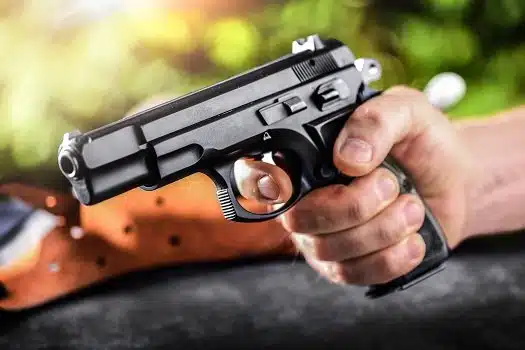In one form or another, handguns have been around for centuries, so these firearms don’t necessarily have inherent design flaws that make them inaccurate. In fact, handguns remain a preferred firearm of choice for many responsible gun owners. Still, they’re often considered the most challenging firearm to shoot well. The firearms safety and training experts from Gun Safety Training Pros, your top choice when you’re looking for a premier gun safety course, explain why this is the case and what you can do to become a more accurate handgun user.
Smaller Size
Handguns are smaller, which allows them to be conveniently carried and concealed, and the reduced size is actually an added perk for many users. That said, the compact design and lighter weight of most popular handguns are also reasons accuracy may be affected.
Shorter Sighting Radius
There’s a shorter sighting radius with handguns than what’s common for long guns, which can make proper alignment with the intended target difficult. The result can be aiming errors for newer and, in some instances, even more experienced handgun users.
Trigger Accuracy
Many handgun users get into the habit of using the tip of the finger to pull the trigger. This can be a reason for inaccurate aiming if enough force isn’t used to fully and firmly pull the trigger. Putting excess pressure on the wrong part of the trigger can also throw off accuracy.
Using the “Wrong” Handgun for You
There’s no single one-size-fits-all handgun. Therefore, one way to improve handgun accuracy is to make sure your preferred type of handgun is one you’re comfortable holding and using. If you have some difficulty firmly gripping your handgun, it can be challenging to keep your firing hand steady or get a firm grip.
Improper Form & Technique
With form and technique, check how you normally stand when preparing to fire your handgun. If you don’t have good front and back balance, accuracy can be affected. Proper body alignment typically requires you to:
• Place your pelvis at a 45-degree angle
• Put one leg to the back of your dominant one to control recoil
• Bend your knees as you stretch out your arms to avoid throwing your balance off
• Align your forearm with the handgun to further minimize recoil
Some handgun users are more comfortable with keeping their arms fully stretched out when shooting, while others have more control with a slightly bent arm. Pick the arm position that works best for you to maintain accuracy.
Grip Issues
Being too forceful with grip can affect accuracy as well. The push-and-pull force created by a firm but not excessively forceful grip keeps the handgun steady and in place. With grip, get into the habit of using two hands when you fire to gain better control.
Lack of Sufficient Practice
Not practicing on a regular basis can also play a role in how accurate you are when shooting. Practice is ultimately beneficial for all handgun users looking to maintain or improve accuracy. Consider becoming a regular visitor to a local range to gain more opportunities to practice and get advice from other handgun users.
Whether you’re new to handgun ownership or you’ve owned handguns for years, safety should always be your top priority when you’re working on boosting your shooting accuracy. If you’d like to learn more about gun safety from experienced professionals by taking a handgun safety course online, reach out to the experts at Gun Safety Training Pros. Contact us today at [email protected].



